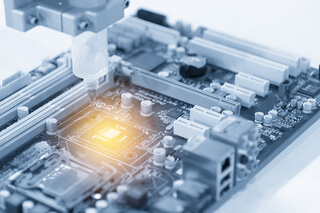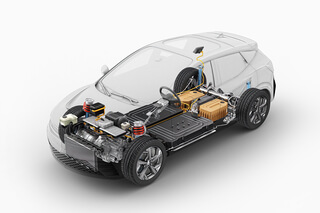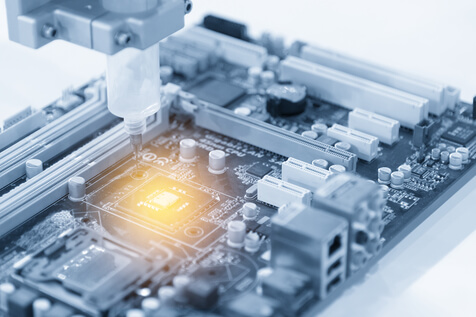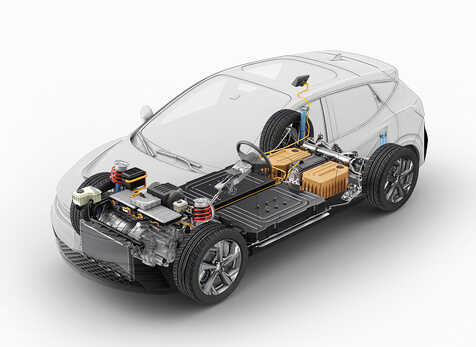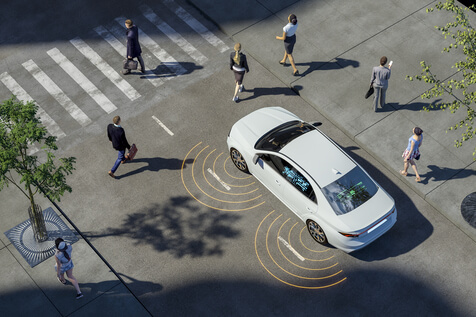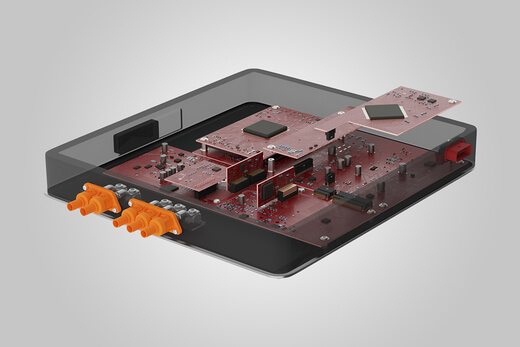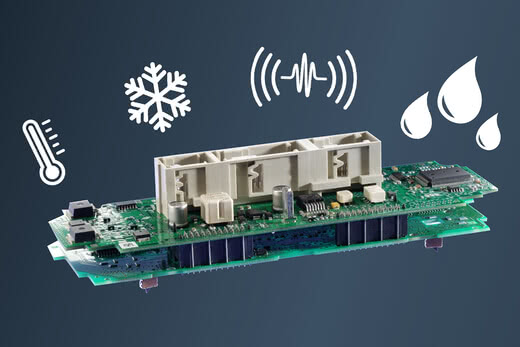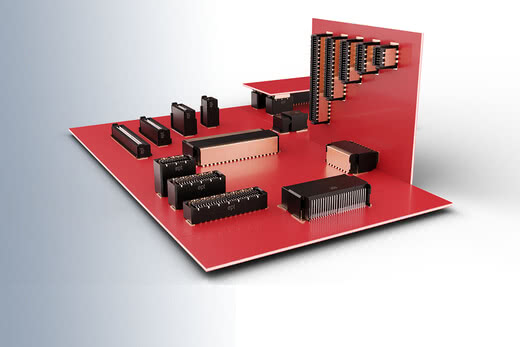Our press-fit technology with Tcom press® meets the high requirements of the automotive industry. The focus of PCB contacting is on press-fit technology, with the Tcom press® press-fit zone developed and successfully used by us. We now produce over 5 billion press-fit contacts per year for the automotive industry.
TCOM PRESS® is characterized by:
Using press-fit technology, we create a highly robust and dirt-proof PCB connector that can withstand vibration, shock, gas, moisture, wetness and dust. Robust press-fit connectors for PCBs have a failure rate (FIT rate) ten times better than automated soldered connectors for PCBs. They are used, for example, in airbag systems, ABS and ESP modules, as signal transmission in these applications must not fail under any circumstances.
Press-fit technology generates maximum holding forces between the connector and the PCB with low press-fit force. During the press-fit process, a press-fit pin with a larger diagonal than the hole diameter is pressed into a plated-through hole in the PCB. In the press-fit zone, the connector pin is flexible so that the PCB is not deformed by physical forces during the press-fit process. The result is a cold weld between the contact pin and the metallized PCB hole: a gas-tight, corrosion-resistant, low-resistance and electrically conductive mechanical connection that is also suitable for potting. It is also specified in DIN EN 60352-5 and remains contact-safe even under very high mechanical and thermal loads, such as vibration, bending, moisture, dust and changes in temperature, and even withstands acceleration loads of up to 200 G due to shock. G-forces define loads that act on the human body, an object or a vehicle due to changes in the magnitude and/or direction of velocity. For comparison: after re-entry into the earth's atmosphere, a space capsule is subjected to a G-force of around 7 G.







